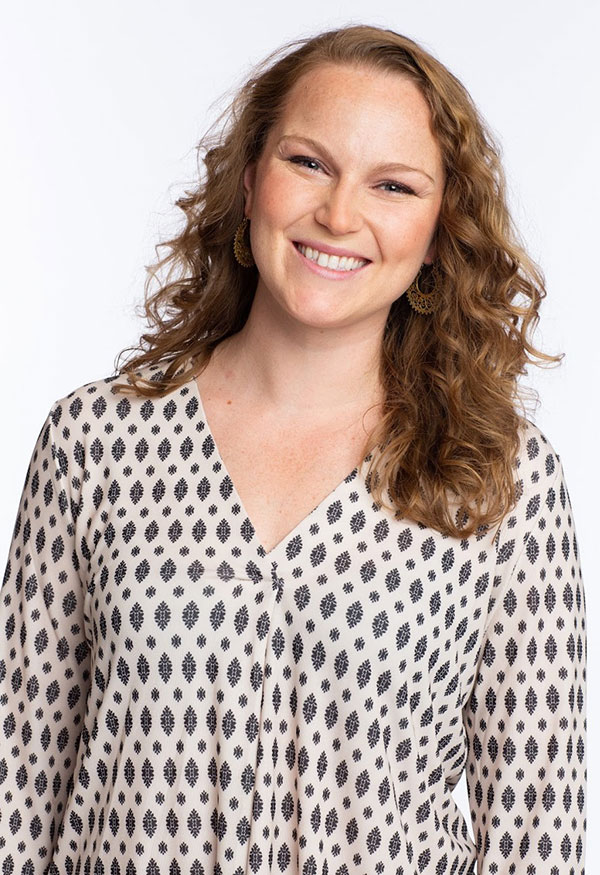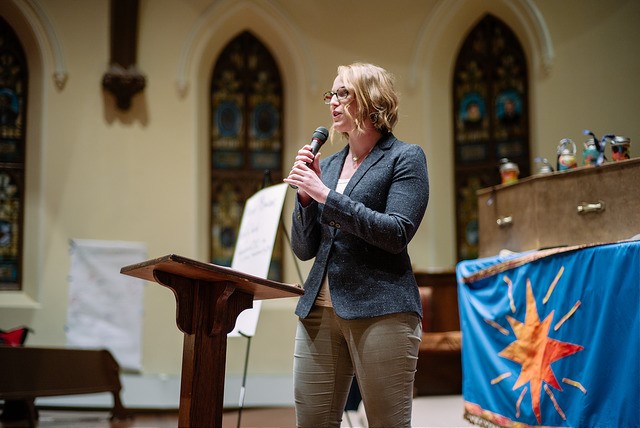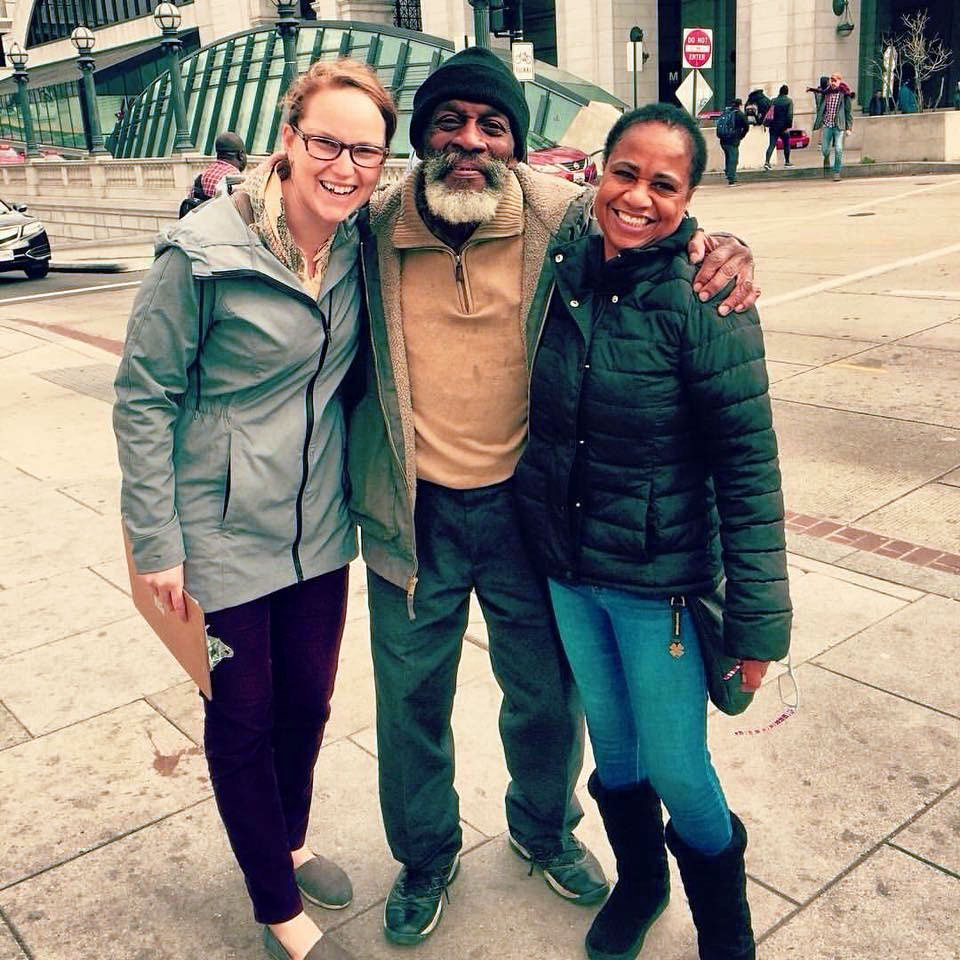Courtney M. Pladsen
DNP, FNP-BC, RN, Nurse Practitioner and Internal Consultant, Family Medicine • Greater Portland Health and Maine Medical, Maine, USAOver the past ten years, Courtney Pladsen has devoted her nursing career to advocacy, health equity, and providing holistic care to under resourced communities. As a nurse practitioner, Courtney works in a Federally Qualified Health Center (FQHC) and provides care to both immigrant communities and people experiencing homelessness.
 Discharge after hospitalization is quite a vulnerable time for people experiencing homelessness.
Discharge after hospitalization is quite a vulnerable time for people experiencing homelessness.
In December of 2015, Courtney developed the first medical respite program for women in Washington, DC. This program has 12 medical beds co-located within the women’s medical shelter.
Through this program, women’s lives are transformed. Medical crises were stabilized, necessary surgeries were completed, and chemotherapies that had been previously denied was initiated due to having a safe supported place to heal.
Courtney’s doctoral scholarly project focused on screening and addressing social determinants of health in primary care.
 This project facilitated the implementation of a Social Determinant Health screening tool within the electronic health record at a FQHC with over 100,000 patients.
This project facilitated the implementation of a Social Determinant Health screening tool within the electronic health record at a FQHC with over 100,000 patients.
In 2017 she trained fifteen staff members at three different community health centers across Washington, DC and in the first two months over 200 patients had been screened. The successful implementation led Courtney to be invited by the DC Department of Healthcare Finance as part of a cross sector collaboration which aimed to screen and address social determinants of health of all DC Medicaid recipients.
 In 2018, Courtney moved to Maine and was awarded the Robert Wood Johnson Foundation’s Culture of Health Leaders Fellowship, where over the next three years she will continue to focus on the intersection of health and housing.
In 2018, Courtney moved to Maine and was awarded the Robert Wood Johnson Foundation’s Culture of Health Leaders Fellowship, where over the next three years she will continue to focus on the intersection of health and housing.
She is working to improve the delivery of healthcare for people experiencing homelessness by bringing the success of the medical respite model to the state of Maine. That model is proving to not only be sustainable, but also repeatable — key factors in making an impact on global health.
Courtney currently is bringing her same methodology to people experiencing homelessness at the FQHC Greater Portland Health.
– Deb
Over the past ten years, Courtney Pladsen has devoted her nursing career to advocacy, health equity, and providing holistic care to under resourced communities. As a nurse practitioner, Courtney works in a Federally Qualified Health Center (FQHC) and provides care to both immigrant communities and people experiencing homelessness.

Discharge after hospitalization is quite a vulnerable time for people experiencing homelessness.
In December of 2015, Courtney developed the first medical respite program for women in Washington, DC. This program has 12 medical beds co-located within the women’s medical shelter.
Through this program, women’s lives are transformed. Medical crises were stabilized, necessary surgeries were completed, and chemotherapies that had been previously denied was initiated due to having a safe supported place to heal.

Courtney’s doctoral scholarly project focused on screening and addressing social determinants of health in primary care. This project facilitated the implementation of a Social Determinant Health screening tool within the electronic health record at a FQHC with over 100,000 patients.
In 2017 she trained fifteen staff members at three different community health centers across Washington, DC and in the first two months over 200 patients had been screened. The successful implementation led Courtney to be invited by the DC Department of Healthcare Finance as part of a cross sector collaboration which aimed to screen and address social determinants of health of all DC Medicaid recipients.

In 2018, Courtney moved to Maine and was awarded the Robert Wood Johnson Foundation’s Culture of Health Leaders Fellowship, where over the next three years she will continue to focus on the intersection of health and housing.
She is working to improve the delivery of healthcare for people experiencing homelessness by bringing the success of the medical respite model to the state of Maine. That model is proving to not only be sustainable, but also repeatable — key factors in making an impact on global health.
Courtney currently is bringing her same methodology to people experiencing homelessness at the FQHC Greater Portland Health.
– Deb
